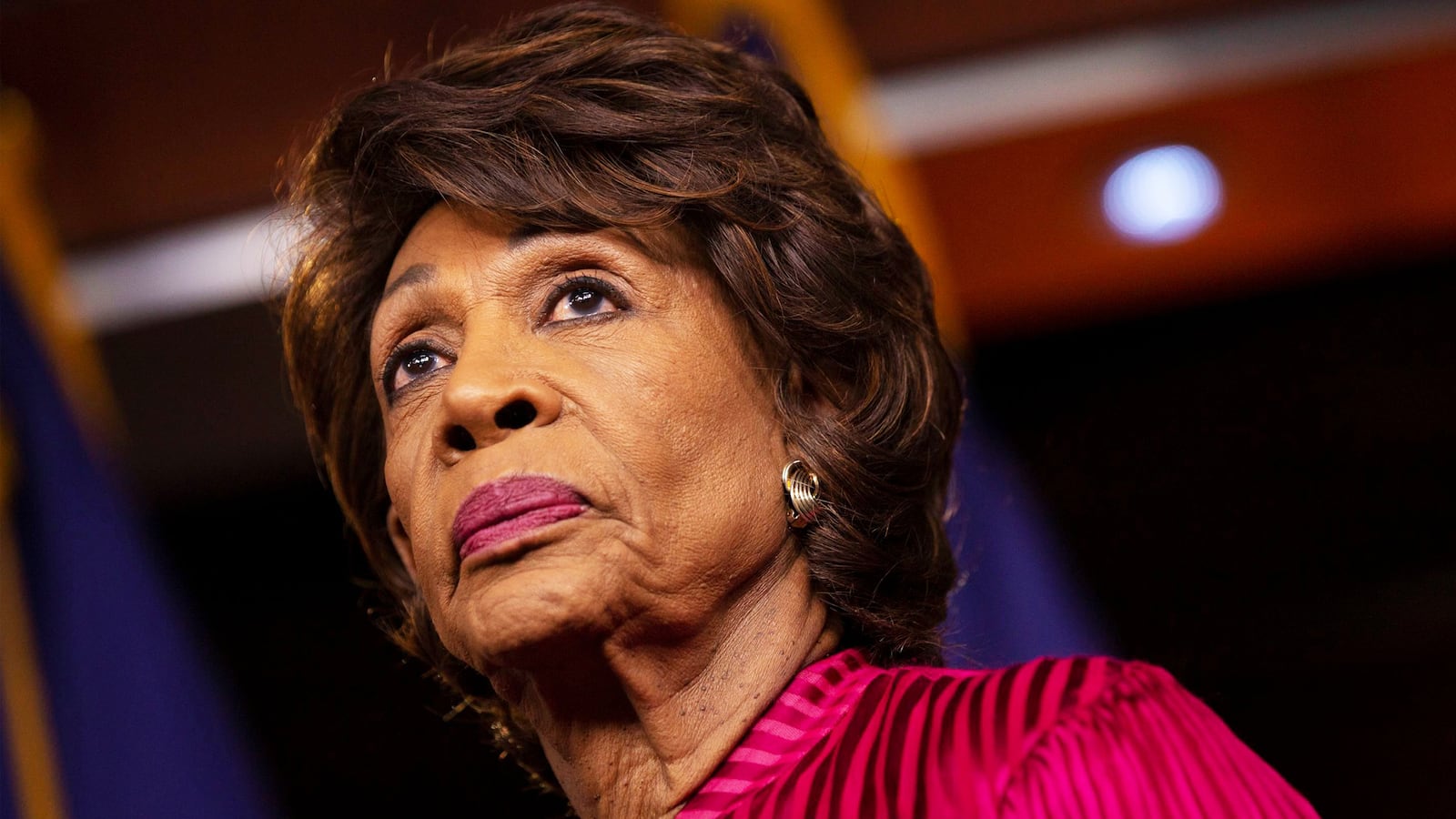Welcome to Pay Dirt—exclusive reporting and research from The Daily Beast’s Lachlan Markay on corruption, campaign finance, and influence-peddling in the nation’s capital. For Beast Inside members only.
A perennial Republican challenger to Rep. Maxine Waters (D-CA) has once again failed to file legally required financial-disclosure statements. And past comments suggest he’s knowingly skirting the requirement.
Omar Navarro did file such a disclosure statement in 2016, when he first challenged Waters, now the powerful chairwoman of the House Financial Services Committee. After being defeated handily, Navarro again declared his candidacy against Waters in early 2017. He went through the entire election cycle without filing personal financial information with House Ethics officials, as required by law.
A week after he again lost to Waters last year, Navarro filed yet another statement of candidacy for the 2020 cycle. And he has once again failed to disclose information about his personal finances. The deadline to do so, or to request an extension, was May 15. House Ethics officials are required to post copies of such filings online within 30 days. But the website shows no filing or extension from Navarro since 2016.
The Navarro campaign didn’t respond to questions about the candidate’s apparent failure to disclose his personal financial information.
A “knowing and willful” failure to file such information can carry steep criminal penalties, a standard that can be difficult to prove. But Navarro’s past comments indicate that he is at least aware of the financial-disclosure filing requirement.
In June 2018, after the second filing deadline of the cycle passed, the Center for Responsive Politics asked Navarro about his failure to disclose that information. “There’s so much going on, things slip by,” he said. “I’m going to make sure I take care of it by the end of the week.” He never did.
House Ethics rules require personal financial-disclosure filings of any candidate who has raised or spent more than $5,000 in an election cycle. Federal Election Commission records show that Navarro hit that threshold on Dec. 3, 2018, a few weeks after he officially declared his 2020 candidacy.
The filing could shed some light on Navarro’s income and assets as he draws from his campaign a “monthly stipend” that has grown from $1,500 in early 2018 to $5,000 in March of this year.
Failure to file financial-disclosure reports is unfortunately common, according to CRP, which found that a third of qualifying 2018 congressional primary candidates had not done so by last year’s deadline. Candidates who fail to do so generally get a reminder from House Ethics officials.
Far less common, though, is going two consecutive election cycles without disclosing any financial information. We’ll be keeping an eye out for Navarro’s filing to see what information he is apparently hesitant to make public.
Get the data:







